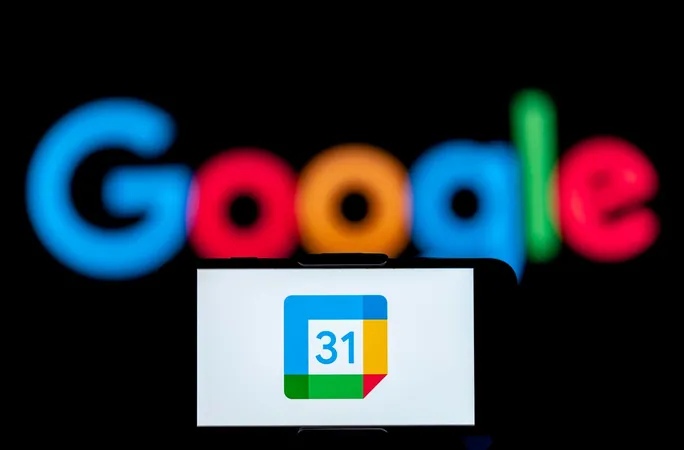
URGENT: Major Google Gmail and Calendar Attack Alert for Millions of Users!
2024-12-18
Author: Ling
Introduction
In a shocking development reported by Check Point researchers, millions of Google users are facing an alarming new attack threat targeting Gmail and Google Calendar. This ongoing cyber threat, highlighted on December 18, 2024, has already seen a staggering 2,300 attacks in just a two-week span, raising serious concerns among security experts.
Nature of the Attack
As Google products like Gmail and Google Calendar become prime targets for cybercriminals, understanding the latest tactics employed by these attackers is crucial for user safety. The report outlines a sophisticated strategy that combines Google Calendar notifications and malicious links embedded in Google Drawings and Forms.
Tactics Used by Cybercriminals
Check Point researchers have noted that these cybercriminals are modifying email sender headers to make their malicious emails appear as though they originate from Google Calendar, allegedly on behalf of legitimate individuals. Disturbingly, around 300 well-known brands have been impersonated in this scheme to trick unsuspecting victims into disclosing sensitive information.
Evolution of Attack Methods
The methodology began with users receiving invitations that linked to harmful Google Forms. However, as security measures were tightened and malicious calendar invites began getting flagged, these attackers pivoted to utilizing Google Drawings. This progression allows them to mask their malicious intent further, presenting users with deceptive links such as fake reCAPTCHA or "support" buttons, all aiming to facilitate payment fraud.
Expert Opinions
Experts warn that this isn’t the first time Google Calendar has been exploited by cybercriminals, and its user-friendly features, while beneficial, can also be used as a gateway for phishing attempts. Stu Sjouwerman, CEO of security firm KnowBe4, emphasized the ease with which these threats can infiltrate users’ calendars, as attackers need only a Gmail address to send their invitations.
Safety Precautions
To safeguard against these threats, users are advised to adjust their Google Calendar settings. This includes switching the option to automatically add invitations to “only show invitations to which I have responded.” Additionally, it’s recommended to uncheck the setting that automatically adds events from Gmail. While these adjustments may cause inconvenience, they significantly enhance security.
Google’s Recommendations
Google also encourages users with eligible Workspace accounts to implement email verification for appointment schedules to thwart unwanted events. A Google representative added that enabling the known senders setting will notify users when they receive invites from unknown contacts, providing an additional layer of safety.
Conclusion
As cyber threats continue to evolve, it is essential for users to stay informed and proactive about their online security. Recent scams, including the usage of counterfeit Google Meet pages, highlight the expanding attack surface within interactive meeting tools. Stay alert and do not become a victim! Make it your mission to prioritize cybersecurity practices in your daily online activities.

 Brasil (PT)
Brasil (PT)
 Canada (EN)
Canada (EN)
 Chile (ES)
Chile (ES)
 España (ES)
España (ES)
 France (FR)
France (FR)
 Hong Kong (EN)
Hong Kong (EN)
 Italia (IT)
Italia (IT)
 日本 (JA)
日本 (JA)
 Magyarország (HU)
Magyarország (HU)
 Norge (NO)
Norge (NO)
 Polska (PL)
Polska (PL)
 Schweiz (DE)
Schweiz (DE)
 Singapore (EN)
Singapore (EN)
 Sverige (SV)
Sverige (SV)
 Suomi (FI)
Suomi (FI)
 Türkiye (TR)
Türkiye (TR)